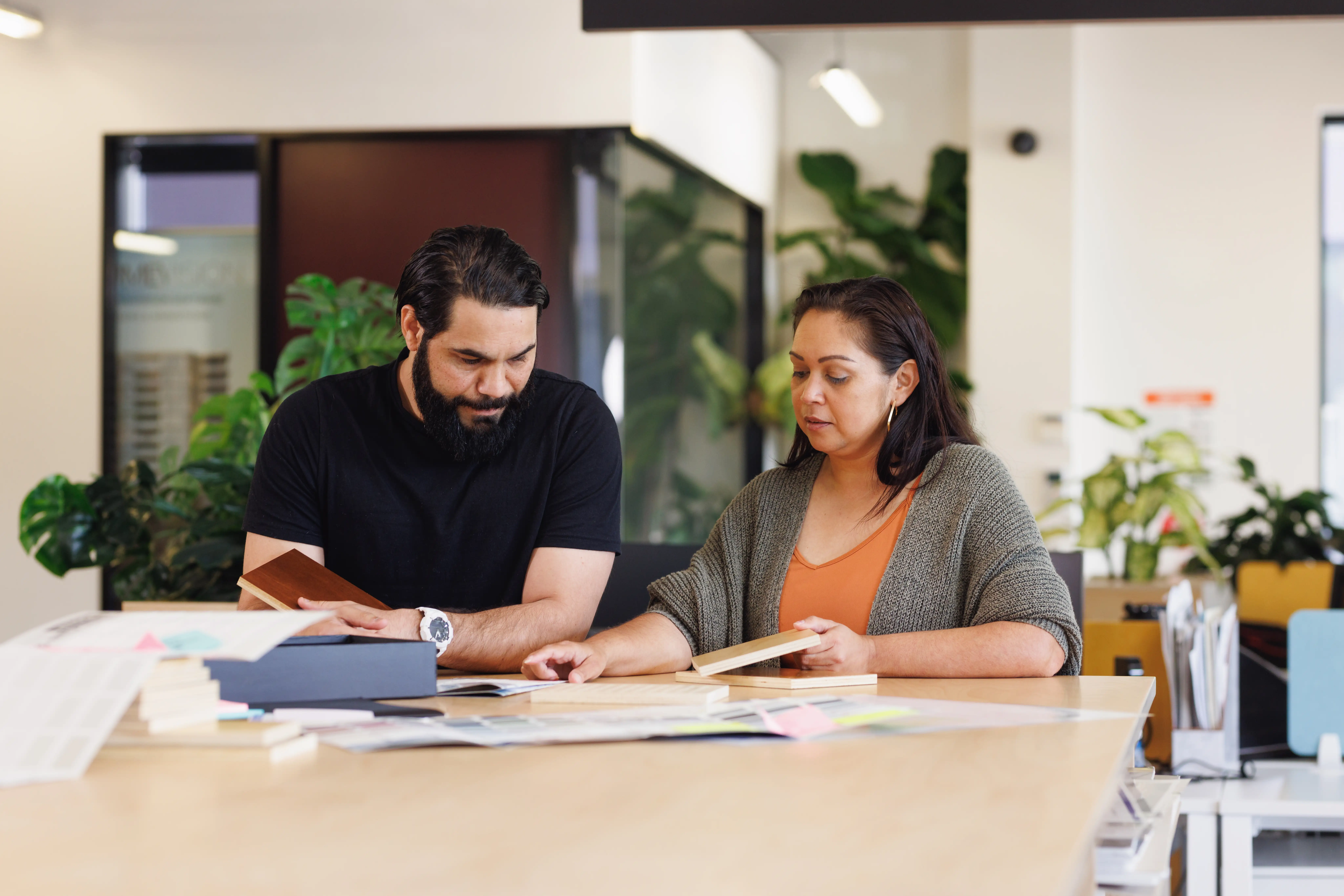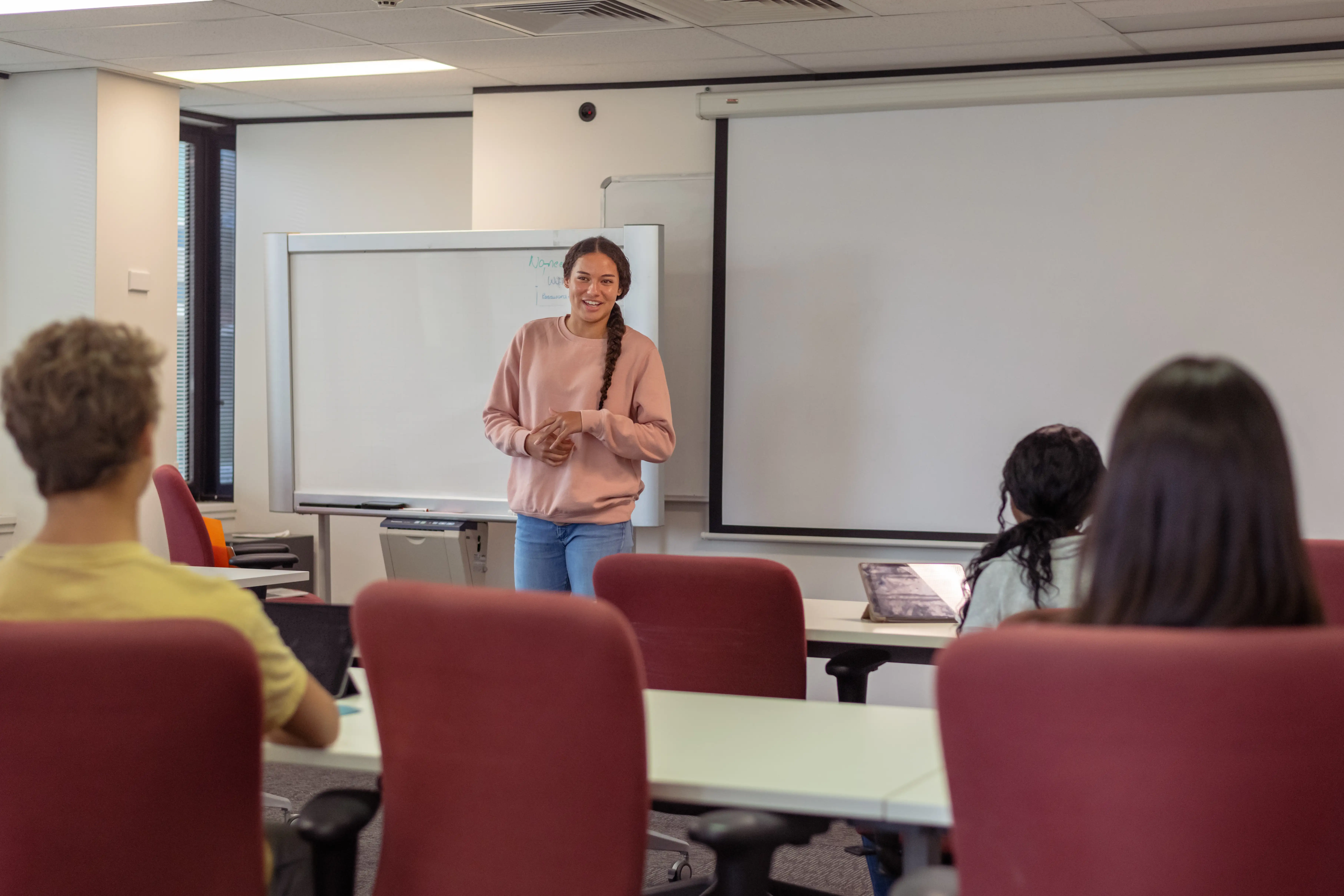
‘Disrupt the blinding whiteness of business education’

First Nations businesses focus on unique and generative ways to engage with the economy. But Indigenous business education in Australia needs to catch up
Published 12 August 2025
Over the past decade, a growing Indigenous economy fuelled by Indigenous entrepreneurs in every industry and geographic part of Australia has emerged.
While research on the Indigenous economy has begun, such as the recent first step into statistically describing the Indigenous business sector, it is by no means enough to quantify the value of the Indigenous economy.

Understanding the impact and interconnectivity of the Indigenous economy is critical for all Australians.
Its contribution to employment and its flow-on effects in the supply chains of government and corporate Australia generate significant value.
Although Indigenous economic contributions are captured and interpreted by business-as-usual frameworks, these fail to paint the full picture of the multilayered effects of Indigenous economic empowerment.
So, what needs to change?
First and foremost, we require a critical, value-based shift in business behaviour, strategy and norms, a reorientation of the “asymmetries of power imposed by Eurocentric social order”, away from a blinkered view of business and economic contributions as “individualistic, merit-based, and profit-orientated market arrangements”.

First Nations businesses focus on unique and generative ways to engage with the economy. For example, sustainability is an intrinsically Indigenous principle. Rather than a focus on consumption, Indigenous firms start with relational principles that interconnect people, Country and culture.
This means that sustainability is not an ideological pursuit, but rather a strategic advantage.
While these are broad generalisations about the nature of Indigenous business, and deeper, critical conversations are required, academia has an important role to play in asking these questions and exploring the value of Indigenous ways of thinking to how business is conducted more generally.
What universities teach and how it is taught impacts the community beyond the four walls of the institution. However, there is another equally important motivation in ensuring that First Nations people are true partners in universities and business schools.

Indigenous business leaders as the decision-makers driving firms are demanding a place in business and economics higher-education institutions; however, they often find these institutions wanting.
The reality of higher education, and in particular Western business academies, is that they have been, and continue to be, sites of significant violence against First Nations people.
This shows up as elitism, exclusion, Eurocentric curricula and ontological positioning fixed so firmly to Western capitalistic ideals.
It is in part why the MURRA (which means ‘fishnet’ in the Woi Wurrung language of the Wurundjeri Woi Wurrung People) Indigenous Business Masterclass Program was conceived, to disrupt the blinding whiteness of business education and to provide an opportunity for Indigenous people to engage in business education.

Politics & Society
‘The field of Indigenous Studies simply gets on with the job’
Since 2012, the MURRA program has created a “container of cultural safety” from which transformational change has emerged. Sixteen intakes of Indigenous business leaders have participated, bringing cultural values into the classroom, grounding each cohort, speaking to their purpose, their why.
Building a better future for families and communities is often at the forefront of the MURRA experience.
In 2021, on the foundation of MURRA, the Melbourne Business School and the University of Melbourne partnered for a new Indigenous-led centre. The hope is that the Dilin Duwa Centre for Indigenous Business Leadership will change the landscape of Indigenous business education in Australia.
Dilin Duwa takes a place in the Indigenous business ecosystem, bringing Indigenous business education and knowledge creation to a growing geography of Indigenous entrepreneurship across Australia, working with communities upon invitation, and by paying attention to the need to democratise business education.

Dilin Duwa means ‘everlasting flow’ in the Woi Wurrung language of the Wurundjeri Woi Wurrung people of Narrm (Melbourne). This strong cultural concept brings the spirit of eternal, connected, intergenerational power to the work of Dilin Duwa.
All three streams of work of the centre – research, programs and engagement – converge, creating complex and enriched knowledges and ways of working in a relationship with all who engage with Dilin Duwa.
The working philosophy for Dilin Duwa is human-centric and relational.
Dilin Duwa does not seek to Indigenise business education through its programs but, as it builds the foundations of the centre, immense importance is placed on creating culturally safe spaces for students, faculty and partners.
This is no easy task within the business academy.

Politics & Society
‘Finding an Indigenous voice’
Why business schools?
It is in the classrooms, curricula and cafés of business educational institutions that we find conversations about the future of business in Australia, and it is where Australia’s business leaders are educated.
Who occupies these spaces matters; however, who has influence over the replication of ideology in the teaching of business education matters more.
The centre’s role is to encourage greater opportunity for participation with a sharp eye on the requirement for structural change in order to create cultural safety for Indigenous business leaders.
Educational institutions hold value for individual-level knowledge and the role knowledge capability advancement has in our economy – even more so for Indigenous Australians who hold the dreams and aspirations of their families, communities and ancestors.
Bridging these worlds will enable Indigenous businesspeople to realise their aspirations for economic empowerment.
This is an edited extract from Dhoombak Goobgoowana – A History of Indigenous Australia and the University of Melbourne – Part 2: Voice, published by Melbourne University Publishing and edited by Dr Ross Jones, Dr James Waghorne and Professor Marcia Langton. Hard copies are available to purchase, and a free digital copy is available through an open-access portal.



